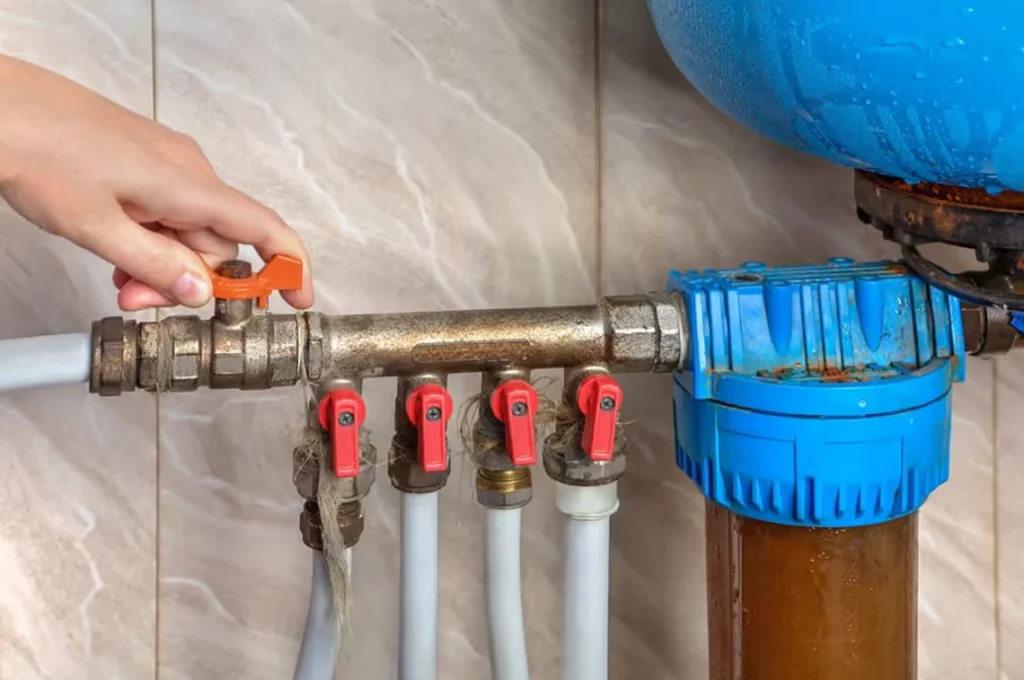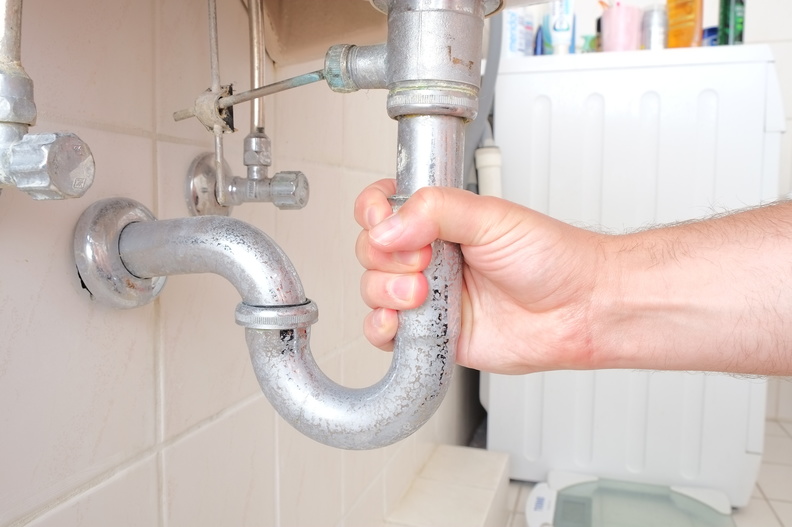Fast Tips for Pipe Problems: Actions to Follow Until A Plumber Arrives
Fast Tips for Pipe Problems: Actions to Follow Until A Plumber Arrives
Blog Article
What're your ideas concerning What to Do During a Plumbing Emergency?

Plumbing emergency situations can strike any time, triggering anxiety and possible damages to your home. Whether it's a burst pipe, a stopped up drainpipe, or a leaky faucet, understanding exactly how to take care of the scenario until an expert plumbing technician gets here can conserve you from further problems. This post offers necessary emergency situation plumbing ideas to aid you minimize damage and regain control during a plumbing dilemma.
Shut off the Water
The very first step in any plumbing emergency is to shut off the supply of water. For localized problems, such as a leaking faucet or bathroom, shut off the valve near the fixture. When it comes to a significant leakage or ruptured pipeline, situate your home's major water shut-off shutoff and transform it off quickly. Recognizing the area of these shutoffs ahead of time can conserve beneficial time throughout an emergency situation.
Shut down Your Hot Water Heater
In specific emergency situations, such as a burst pipe, it's a good idea to shut off your water heater. This prevents getting too hot or damage to the unit when water quits streaming. Shut off the power supply to the hot water heater (electric or gas) and let it cool off to prevent potential hazards.
Momentarily Stop a Ruptured Pipe
A burst pipeline can cause significant water damages in minutes. To mitigate the concern:
Call an expert plumbing technician instantly to address the trouble completely.
Have an Emergency Pipes Set
Prepare a fundamental plumbing emergency situation set to handle small problems effectively. Your package ought to include:
Having these tools handy can make a significant difference in your capacity to handle emergencies.
Unclog Drains Pipes Safely.
A clogged up drainpipe can be a frustrating and unpleasant issue. Below's exactly how to tackle it:.
If these approaches don't work, prevent making use of excessive force, as it might get worse the blockage.
Manage Overflowing Toilets.
An overflowing bathroom can create prompt chaos. Right here's what you must do:.
Address Tiny Leakages with Short-term Fixes.
Small leakages can rapidly end up being considerable issues if left untreated. Make use of these short-lived solutions till specialist aid gets here:.
While these solutions aren't permanent, they can help decrease water loss and damages.
Take Care Of Frozen Water Lines Meticulously.
In cooler climates, frozen pipes are a typical emergency. If you believe a frozen pipe:.
Know When to Call an Expert.
While quick fixes can assist briefly, specific plumbing problems need prompt professional attention. Call a plumbing technician if:.
Without delay speaking to an expert makes sure the problem is dealt with correctly and protects against additional problems.
Protect against More Damages.
Taking fast activity to reduce damage can conserve you time and money in the long run. Below's just how:.
Final thought.
Plumbing emergency situations can be overwhelming, yet with the best knowledge and tools, you can take care of the circumstance properly up until aid shows up. By switching off the supply of water, resolving little leakages, and using short-lived fixes, you can lessen damage and maintain your home safe. Bear in mind, these suggestions are short-lived solutions; always seek advice from a qualified plumbing to manage the root cause of the issue. Prep work and quick thinking are your ideal allies in any plumbing emergency situation.
8 Helpful Tips for Managing Plumbing Emergencies at Home
If your plumbing system hasn’t failed once, wait for it because almost everyone has a story to tell. Sometimes, it could be simple emergencies such as a leaking pipe, a blocked cistern, or even a big burst pipe. In situations like this, you need to have some handy tips to save you some money and from possible damages.
Take care of minor issues early.
Sometimes, you could have avoided an emergency by taking proactive measures while it was still early. Some major plumbing emergencies can be a result of an ignored minor issue. We recommend that you have items like plumbing tapes and other related items. A plumbing tape can allow you to manage minor leaks before the plumber arrives.
Cut off the water supply.
This tip is essential in almost any type of leakage problem. For problems like minor leakages in the toilet or kitchen, turn off the supply that takes water to the affected pipes. If the leakage is a major pipe, you must shut off the supply valve to the entire building. This will help you avoid flooding your home and neighbors if you share a flat.
Know your plumbing system
Folks typically move into a new apartment without understanding the water supply around the building. This can prove disastrous if a water emergency arises and the plumber is far away. The previous tip will prove useless if you don’t practice this one. More importantly, know where your water shut-off valve is located – you’ll need that knowledge to prevent potential home floods.
Have some common handy tools
There are lots of plumbing emergencies that you can handle without hiring a plumber. That’s why you must keep some tools available always. Some tools that you can use to fix simple plumbing emergencies easily include plumbing tapes, screwdrivers, thread seal tapes, plungers, pliers, tape measures, and rubber gloves.
Insulate your pipes from cold
You’ll save yourself from many plumbing expenses if you protect your water pipes from the cold. This is because of the harmful effects that cold weather can have on your pipes. During winter, your pipes can burst from being overly expected to freezing temperatures. So, make sure insulators are there to keep the pipes working correctly.
Avoid practices that will clog your toilet.
Many people indulge in practices that can damage the plumbing system of the entire building. One of these is when they use their toilet to dispose-off garbage. They flush all kinds of things, such as paper towels, bandages, hairs, female sanitary products, etc., down the toilet. This will block your toilet in the long run, incurring unnecessary expenditures. Dump such waste in the trash instead.
Check your dials regularly.
Sometimes, there could be leakages in your home without noticing them in time. So, constantly monitor your water meter dial. If the dial is reading when there is nobody using water, this is an indicator that there is leaking. Check for leaks immediately. Call a plumber as soon as possible if you can’t find any.
https://www.constructionplacements.com/8-helpful-tips-for-managing-plumbing-emergencies-at-home/

Do you like more info about What to Do While Waiting for an Emergency Plumber? Write a remark directly below. We would be glad to know your ideas about this write up. We hope that you visit us again in the near future. If you please take a moment to promote this blog posting if you enjoyed reading it. We value your readership.
Quote Report this page